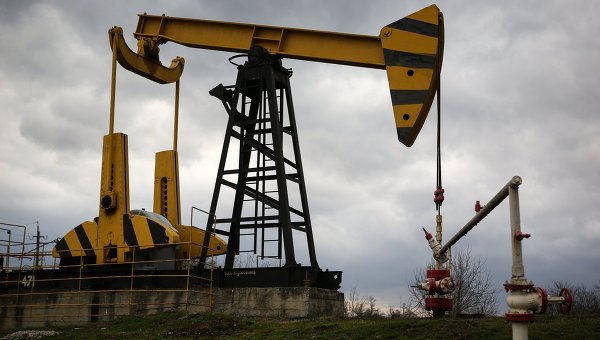Baku, Azerbaijan March 3
By Elena Kosolapova - Trend:
The agreement on freezing the oil output at January levels, which has already received support from over 15 countries, won't lead to higher prices, but can decrease the market volatility and stabilize the prices at current levels, Russian expert Vladimir Revenkov told Trend.
Earlier, the energy ministers of Russia, Saudi Arabia, Venezuela and Qatar agreed to freeze the oil output at Jan.11 level. Later, Russia's Energy Minister Alexander Novak said that over 15 countries have joined this initiative.
Revenkov, deputy head of the Energy Department of Russian Institute for Energy and Finance, said that freezing the oil output at January levels is a half-measure and it solves hardly anything.
"Currently, the excess oil supply is 1.5-2 million barrels per day compared to the demand, according to all data, including the estimates of OPEC and the International Energy Agency (IEA)," said the expert.
"Even a slight increase in the volume of commercial products on the market leads to lower prices for it," he added.
The oil demand stood at 92.96 million barrels per day in 2015, while the oil supply to world markets was 95 million barrels, according to OPEC.
This is while the IEA data says that these figures were equal to 94.4 million barrels and 96.4 million barrels, respectively.
Revenkov said that in order for prices to start growing it's necessary to substantially decrease production.
"But if it's done artificially, only a few countries will agree to it," the analyst said. "Russia cannot agree to reduce production due to the country's peculiarities in the northern regions with low temperatures. Saudi Arabia could decrease production, but the country doesn't want to lose its market share, as it repeatedly stated."
Revenkov said that the rise in oil prices could also take place in the result of acceleration of the global economy's development, in particular the economy of China, which is the largest consumer of oil in the world market, and that will lead to an increase in demand for raw materials.
At the same time, the expert said it was a positive move to reach a global agreement on the level of OPEC and non-OPEC countries.
"At least, this agreement may lead to stabilization of prices at the current level and reduction of price volatility in the market, which was observed in recent months," Revenkov said.
The expert went on to add that the number of countries which joined this agreement today doesn't play a special role, because the world's major producers, such as Saudi Arabia and Russia, are already members of this agreement.
Meanwhile, Revenkov considers that the reached agreement is a purely psychological moment, as no one will be able to monitor the implementation of commitments on the output level, and there is no guarantee that the countries will not break it [the agreement].
Regarding another major oil producer - the US, the expert thinks that the situation with oil prices at the level of $40 will itself lead to a reduction of output in this country.
Revenkov said that the sharp increase in shale oil output in the US was one of the factors, which led to oversupply of raw materials in the world market.
He added that now many US shale companies are experiencing serious difficulties due to low oil prices and resorting to refinancing of debts, which will lead to a decrease in production.
The price of May futures for Brent oil was $36.95 per barrel on March 3 morning. Meanwhile, the price of April futures for WTI oil was $34.74 per barrel.
Edited by SI
---
Follow the author on Twitter: @E_Kosolapova






